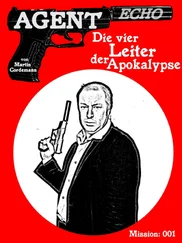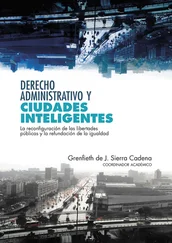We left the yard for breakfast at the hotel at about a quarter to eight. As we got into the car I saw a pair of transit vans pull up at the gate. One was blue and had the name of a security firm stencilled on its side in yellow capitals with a logo underneath of a portcullis wreathed in barbed wire. Three men got out of it, two from the cab and one from the rear with a German shepherd on a short chain lead. The three men were all well built and unsmiling and dressed in smart black tunics.
‘Your Chesney anecdote alarmed me,’ my father said. ‘I’ve taken fresh precautions.’
The second van contained six men wearing a mixture of overalls or jeans with chambray shirts and puffa jackets. One among them, I assumed, was their foreman and showed some papers to the first group. They stood a little nervously while the dog was allowed to sniff at each man and learn his scent. Then the gate was opened and, carrying their boxes of tools, they approached the boatshed.
‘We need to be back here by noon,’ my father said. It gave us plenty of time. ‘From now on, Martin, the only sardonic laughter you will be hearing around the Dark Echo will be mine.’
An item of mail was brought to our table at breakfast. It was carried on a silver salver by Marjena, who gave a little bow of her head on delivering it to my father. It was a sealed A3-sized Manila envelope and his name and the address of the hotel were written on it in a careful hand. The writing reminded me of the column of figures I’d seen on the desk blotter in Peitersen’s office. Some of the letters had a similar character, as though described by the nib of the same ink pen. My father took the letter and thanked the girl and then held it out to me across the tabletop.
‘Open it, Martin.’
I used the knife from my side plate. Before I did so I examined the postmark. It was a bit blurred and indistinct, but the letter had been sorted at the big central office at Mount Pleasant in London. When I slit the envelope, a small collection of banker’s drafts slid out on to the tablecloth. I knew what they were. They were the monthly payments my father had been making to Peitersen. And they had remained uncashed. He had used the expenses account for the payment of other men and he had bought materials from that fund, too – I had seen the invoices at the yard. But he had taken nothing for himself. I opened the envelope with my thumb and saw that there was a note in it, still stuck at its edge to the gum that had closed the corner of the flap. I freed and unfolded the note and read it aloud.
She’s ready, Magnus. You could tinker and fret over her for ever, but she’s ready. Rig the sails when they arrive. It’s a job a vessel’s master should oversee himself. Give her a week’s sea trials off Scotland’s Atlantic coast. Or take her across the Irish Sea to Dublin and back. It will take a voyage of that nature to determine whether you and the boy are ready for her. But she’s ready for you, Magnus. And I wish you God Speed aboard her.
The note was not signed. My father raised his eyebrows and took it from me and read it himself. Then he folded it and put it in his pocket. He reached for the banker’s drafts and aligned them in his hands with a shuffle, then tore them in half and dropped them on to the table. He dabbed at his mouth with his napkin and signalled by rising from his chair that it was time for us to leave.
His helicopter had arrived by the time we got back to the boatyard. It sat on the hard sand from which the early tide had retreated with Tom, my father’s regular pilot, smoking one of his little brown cheroots and lounging in his aviator glasses at its side. I did not have long to wonder why they were there. Monsignor Delaunay stood at the edge of the sea in his Mass robes, his bright stole flapping in the breeze, his biretta secured to his head by the finger of a raised hand as he looked out over the Solent towards Cowes. It had been better than a decade since I’d seen my favourite seminary Jesuit last, but I recognised immediately the huge neck, the incongruous power in his Olympian shoulders and back. He must have sensed our arrival, because he turned and then saw and approached us. And I saw that God, or Providence, had been good to him in the intervening years. He was greyer at the temples, thicker about the jowls, perhaps. But he had not really aged very much.
‘Martin!’ he said, and he opened his arms and embraced me, lifting me clean off the sand. ‘I’ve come to bless your father’s boat,’ he said.
But I had guessed that for myself.
‘Have you seen her, Monsignor?’
‘I have, Martin. And she is a work of art.’
‘Speaking of which, there is one of your ancestor’s paintings aboard her.’
He laughed. It was a real pleasure for me to see him. Much of my nineteen months in Northumberland had been purgatory. All the best bits, in my memory of that time, involved this formidable priest. ‘My claim to kinship with that particular Delaunay is a mite tenuous,’ he said.
He duly blessed the boat. This simple service passed without incident. He murmured the liturgy and sprayed the holy water with the flick of a brush. I assisted by holding the ornate silver vessel into which he dipped the bristles. He did it thoroughly. Even the sail store received a sprinkle. When I opened it, it contained no wormy canine odour, no trace of Spalding’s phantom dog. Afterwards, he went to the building I still thought of as Peitersen’s office and changed into the suit he must have worn on the outward journey from the seminary. He emerged with an old-fashioned canvas grip in his hand. It contained his vestments and his vial of holy water. It had been a long way to come and whatever my father’s powers of persuasion, the trip had been made at very short notice. I was touched.
My father suggested a pub along the coast that did an excellent lunch. They also kept a comprehensive, even esoteric range of single malts. He had remembered that Monsignor Delaunay was partial to a whisky. We should set off in a few minutes, he said. It would be the perfect preparation for the Monsignor’s return flight. Then he strode off across the sand to say something to Tom, whose own lunch lay in a refrigerated bag aboard the aircraft.
‘It’s very good to see you, Martin.’
‘And marvellous to see you, Monsignor.’
He studied me. He still had a smile on his face. But he knew me, knew the workings of my mind and conscience. For a year and a half, he had been my confessor. I doubted there was a living soul apart from Suzanne and my father who knew me better. And my father’s insight into my character was probably obscured somewhat by my almost constant efforts to impress him. Of all the men I’d met, perhaps Monsignor Delaunay knew my true nature best.
He gestured back towards the boathouse. ‘When you return from this adventure, you might think about marriage and a family, my lad.’
I blushed. I was living in sin. Evidently he knew I was.
‘It’ll be the making of you. It will fulfil the woman you love. And it will provide your father with more pleasure than anything, once he gets this Conradian adventure accomplished and out of his system.’
I said nothing to that. I looked down at the drying sand as the wind gently scoured the pattern of tidal retreat from its surface. Then I looked back up again. The monsignor was still smiling. In the unforgiving light on the beach, his teeth were tea-stained. He would play the whisky priest for an hour in the pub for my father. But what he really drank was tea. And what he was really about was faith and penance and conversion. He had never in his life held a woman to him in the dark part of the night for consolation. And he never would.
‘The boat is benign, Martin. She’s a gorgeous toy, fashioned from wood and brass and steel. She’s an extravagance, a rich man’s indulgence. But your father is a great and compassionate giver to good causes. And a boat is only a boat. Retain sufficient of your faith to know that such constructions cannot be cursed. And now she is blessed. Enjoy your voyage. Delight in your father’s company. I will pray you come home safe and sound.’
Читать дальше












